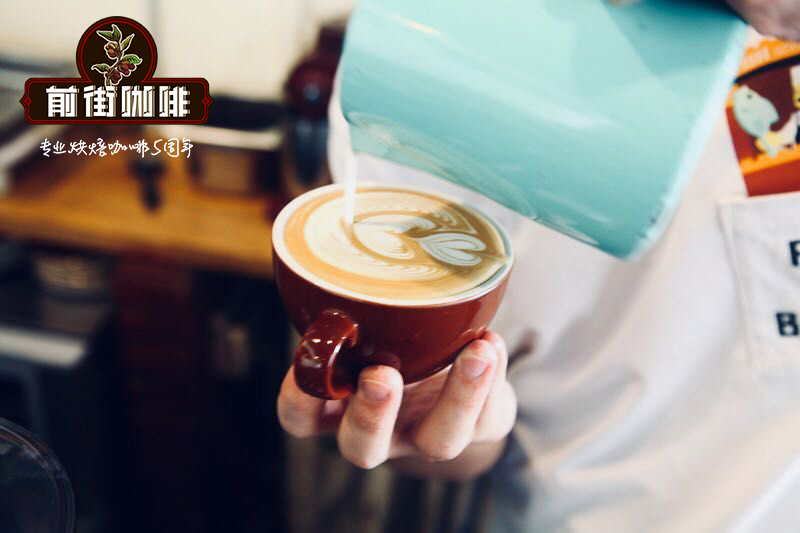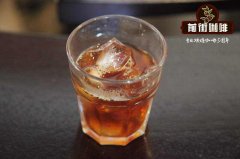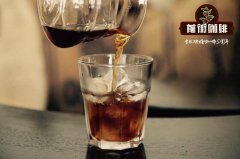How much is a cup of Blue Mountain coffee in the front street? What is the taste and flavor of Blue Mountain Coffee? Blue Mountain Coffee

Professional coffee knowledge exchange more coffee bean information please follow the coffee workshop (Wechat official account cafe_style)
How much is a cup of Blue Mountain coffee in the front street? What is the taste and flavor of Blue Mountain Coffee? Does Blue Mountain Coffee drink with milk? How to cook it?
Front Street Jamaica Blue Mountain Coffee beans authentic BlueMount Blue Mountain NO.1 Coffee 100g roasted
The Blue Mountains lie to the east of the island of Jamaica (Jamaica). Jamaica, the origin of Blue Mountain Coffee, gets its name from the Blue Mountains surrounded by the Caribbean Sea. Because the mountain is surrounded by the Caribbean Sea, whenever the weather is clear, the sun shines directly on the blue sea, and the mountain peak reflects the bright blue light of the sea, hence its name. The highest peak of the Blue Mountains, which is 2256 meters above sea level, is the highest peak in the Caribbean and a famous tourist attraction. Located in the coffee belt, with fertile volcanic soil, fresh air, no pollution, humid climate, foggy and rainy all the year round (the average precipitation is 1980 mm, the temperature is around 27 degrees), this climate has created the world-famous Jamaican Blue Mountain Coffee and the highest price coffee in the world. This kind of coffee has the characteristics of all good coffee, not only full-bodied and mellow, but also because of the perfect combination of sweet, sour and bitter coffee, it has no bitter taste at all, only a moderate and perfect sour taste. Generally drink single product, but because the output is very small, the price is extremely expensive, so the market is generally similar to the taste of coffee to prepare sour, sweet, bitter taste are very harmonious and have excellent flavor and aroma, suitable for individual coffee, suitable for moderate roasting.
The "secret" of why Blue Mountain coffee tastes pure: their coffee trees are all on rugged hillsides, and the picking process is so difficult that non-local skilled women are simply unable to do it. It is very important to choose the right ripe coffee beans when picking. Immaturity or ripeness will affect the quality of the coffee. The picked coffee beans are shelled on the same day, and then let them ferment for 18 hours. After that, the coffee beans were cleaned and screened. The subsequent process is to dry, which must be carried out on the cement floor or on a thick blanket until the humidity of the coffee beans drops to 12% 14%. And then store it in a special warehouse. Take it out and roast when needed, then grind it into powder. These procedures must be strictly mastered, otherwise, the quality of coffee will be affected.
History of Blue Mountain Coffee:
In 1717 King Louis XV of France ordered the cultivation of coffee in Jamaica, and in the mid-1920s, Nicholas, Governor of Jamaica. NicholasLawes imported Arabica seeds from Martinique and began to plant them in St. Andrews (St.Andrew). To this day, St. Andrews is still one of the three major producers of Jamaican Blue Mountain Coffee, with the other two producing areas: Portland (Portland) and St. Thomas (St.Thomas).
In eight years, Jamaica exported more than 375 tons of pure coffee. In 1932, coffee production reached its peak and more than 15000 tons of coffee was harvested. In 1950, the Government of Jamaica established the Jamaica Coffee Industry Committee (theJamaicaCoffeeIndustryBoard), which sets quality standards for Jamaican coffee and oversees the implementation of quality standards to ensure the quality of Jamaican coffee. The Commission awarded special official seals to raw and roasted coffee exported from Jamaica, which is the highest-level national coffee institution in the world. At present, there are six kinds of marks that can represent the origin of Blue Mountain Coffee, such as Mafis River Embankment Central Factory (MBCE), Blue Mountain Coffee Cooperative Factory (MHCCT), Portland Blue Mountain Coffee Cooperative Factory (PXXSH), Coffee Industry Association (Warren Ford), Coffee Industry Association (St. John's Peak) and Lanli (JAS).
By 1969, the situation had improved because the use of Japanese loans had improved the quality of production, thus ensuring the market. By now, this kind of coffee has reached the point of being feverishly loved. By 1981, about 1500 hectares of land in Jamaica had been reclaimed for coffee cultivation, followed by investment in another 6000 hectares of coffee land. In fact, today's Blue Mountain area is a small area with a planting area of only 6000 hectares, and it is impossible to grow all the coffee marked "Blue Mountain" there. Another 12000 hectares are used to grow two other types of coffee: Alpine Top Coffee and Jamaican Superior Coffee.
Characteristics of Blue Mountain Coffee:
The real Blue Mountain Coffee is made from the best local raw coffee beans, which is the official pleasure of tasters. Its flavor is rich, balanced, fruity and sour, and can meet people's various needs. In addition, the high-quality fresh Blue Mountain coffee has a long-lasting flavor, as drinkers say, with a lingering aftertaste. The best blue mountain coffee beans are NO.1peaberry, also known as pearl beans, which are carefully selected small round beans and boutique products at an altitude of 2100 meters. Flavor: the aroma is very full-bodied, with persistent fruit flavors.
Granule: fuller suggested roasting method: the caffeine content of moderately roasted Blue Mountain coffee is very low, less than half of other coffee, in line with modern people's concept of health. The same coffee tree species, whether planted in Hawaii, Kenya, Papua New Guinea or anywhere else with a similar climate, cannot produce the flavor of blue mountain coffee beans. Pure Jamaican Blue Mountain Coffee perfectly combines the unique sour, bitter, sweet, mellow and other flavors of coffee to form a strong and attractive elegant flavor, which is unmatched by other coffee.
Qianjie recommended cooking:
Jamaica Blue Mountain Coffee costs 60 yuan per cup
Filter cup: KONO filter cup
Water temperature: 88 degrees
Degree of grinding: small Fuji degree of grinding 4
Cooking method: the ratio of water to flour is 1:14, 17g powder, 25g water for the first time, steaming for 30s, and 238g water for the second time. The extraction time is about 2:30 seconds.
Analysis: there are not many ribs at the bottom of the Kono cup, and the filter paper clings to the filter cup to achieve the purpose of limiting air flow, which can make water and coffee powder have longer contact soaking time in the filter cup and ensure the extraction time and extraction rate of rough grinding. In this way, the coffee powder can be fully extracted, enhance the mellow taste and make the taste more concentrated.
Flavor: well balanced, clean, thick and solid on the palate, with a long dark chocolate finish.
Important Notice :
前街咖啡 FrontStreet Coffee has moved to new addredd:
FrontStreet Coffee Address: 315,Donghua East Road,GuangZhou
Tel:020 38364473
- Prev

How does Jamaican Blue Mountain Coffee taste? Is the price of the front street Jamaican Blue Mountain coffee expensive? Jamaica
Professional coffee knowledge exchange more information about coffee beans Please follow the coffee workshop (Wechat official account cafe_style) how does Jamaica Blue Mountain Coffee taste? Is the price of Jamaican Blue Mountain coffee on the front street expensive? What are the coffee producing areas in the Blue Mountains of Jamaica? Jamaican coffee beans have a long history. In 1728, the then British Governor Nicholas Lowe Sir Nicholas Lawes, from
- Next

Is it true that Jamaica Mavis Bank Blue Mountain Coffee NO.1? A cup of authentic Blue Mountain Coffee in Front Street
Professional coffee knowledge exchange more coffee bean information please follow the coffee workshop (Wechat official account cafe_style) Jamaica Mavis Bank Blue Mountain Coffee NO.1 is it true? How much is a cup of authentic Blue Mountain coffee in front of the street? Front Street Jamaica Blue Mountain Coffee beans authentic BlueMount Blue Mountain NO.1 Coffee 100g roasted Jamaica Mavis Bank Blue Mountain NO.1 beans, Mav
Related
- Detailed explanation of Jadeite planting Land in Panamanian Jadeite Manor introduction to the grading system of Jadeite competitive bidding, Red bid, Green bid and Rose Summer
- Story of Coffee planting in Brenka region of Costa Rica Stonehenge Manor anaerobic heavy honey treatment of flavor mouth
- What's on the barrel of Blue Mountain Coffee beans?
- Can American coffee also pull flowers? How to use hot American style to pull out a good-looking pattern?
- Can you make a cold extract with coffee beans? What is the right proportion for cold-extracted coffee formula?
- Indonesian PWN Gold Mandrine Coffee Origin Features Flavor How to Chong? Mandolin coffee is American.
- A brief introduction to the flavor characteristics of Brazilian yellow bourbon coffee beans
- What is the effect of different water quality on the flavor of cold-extracted coffee? What kind of water is best for brewing coffee?
- Why do you think of Rose Summer whenever you mention Panamanian coffee?
- Introduction to the characteristics of authentic blue mountain coffee bean producing areas? What is the CIB Coffee Authority in Jamaica?

